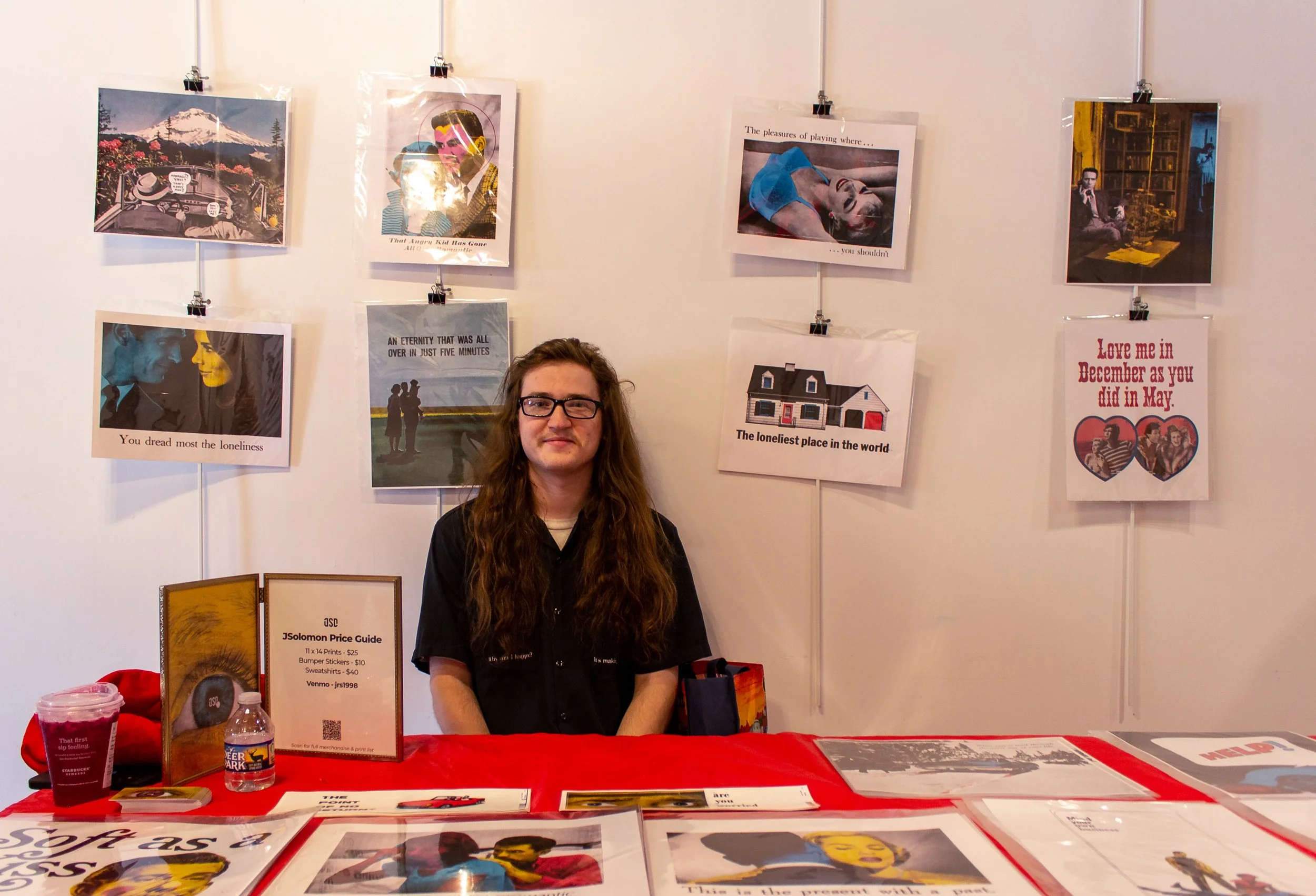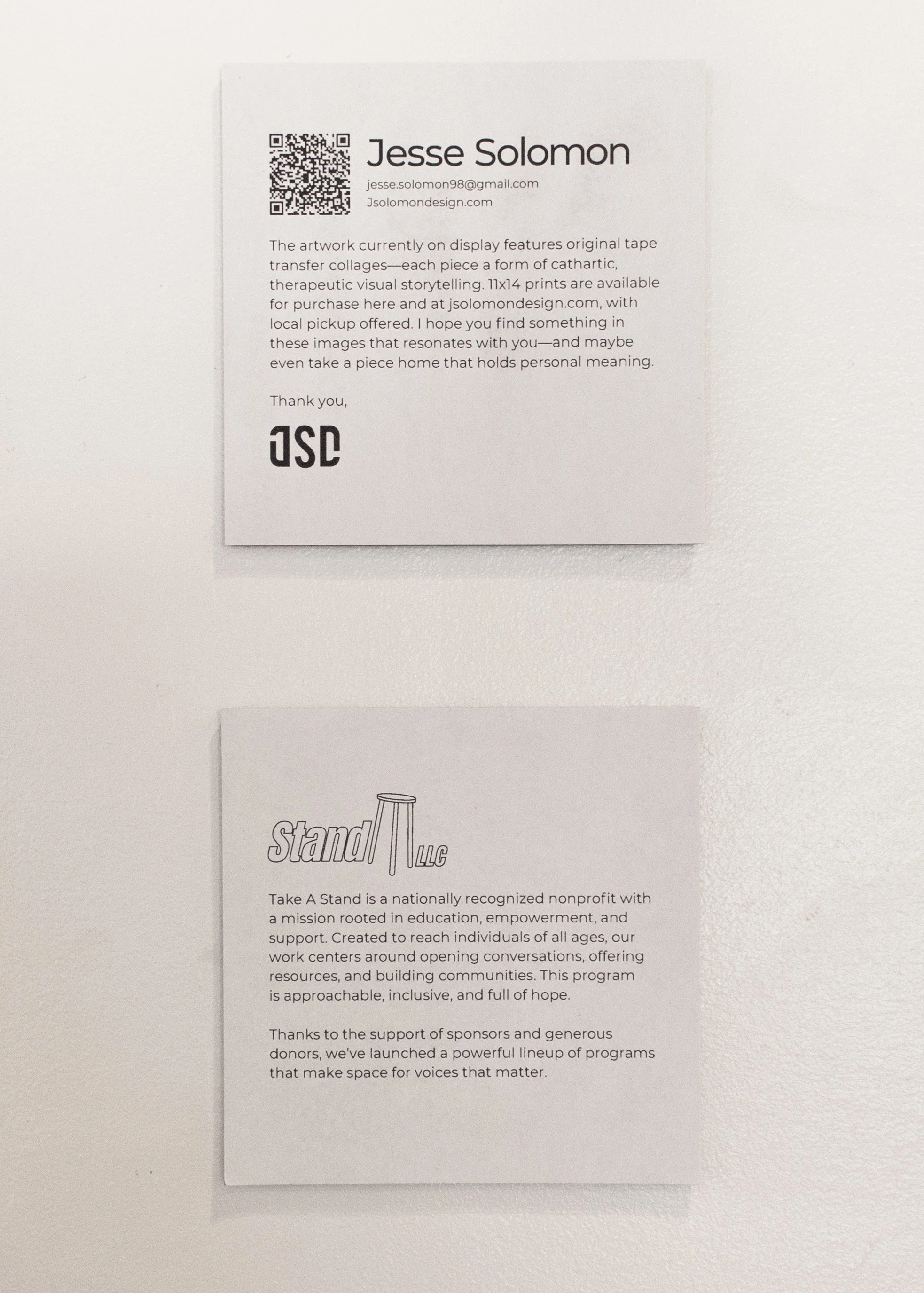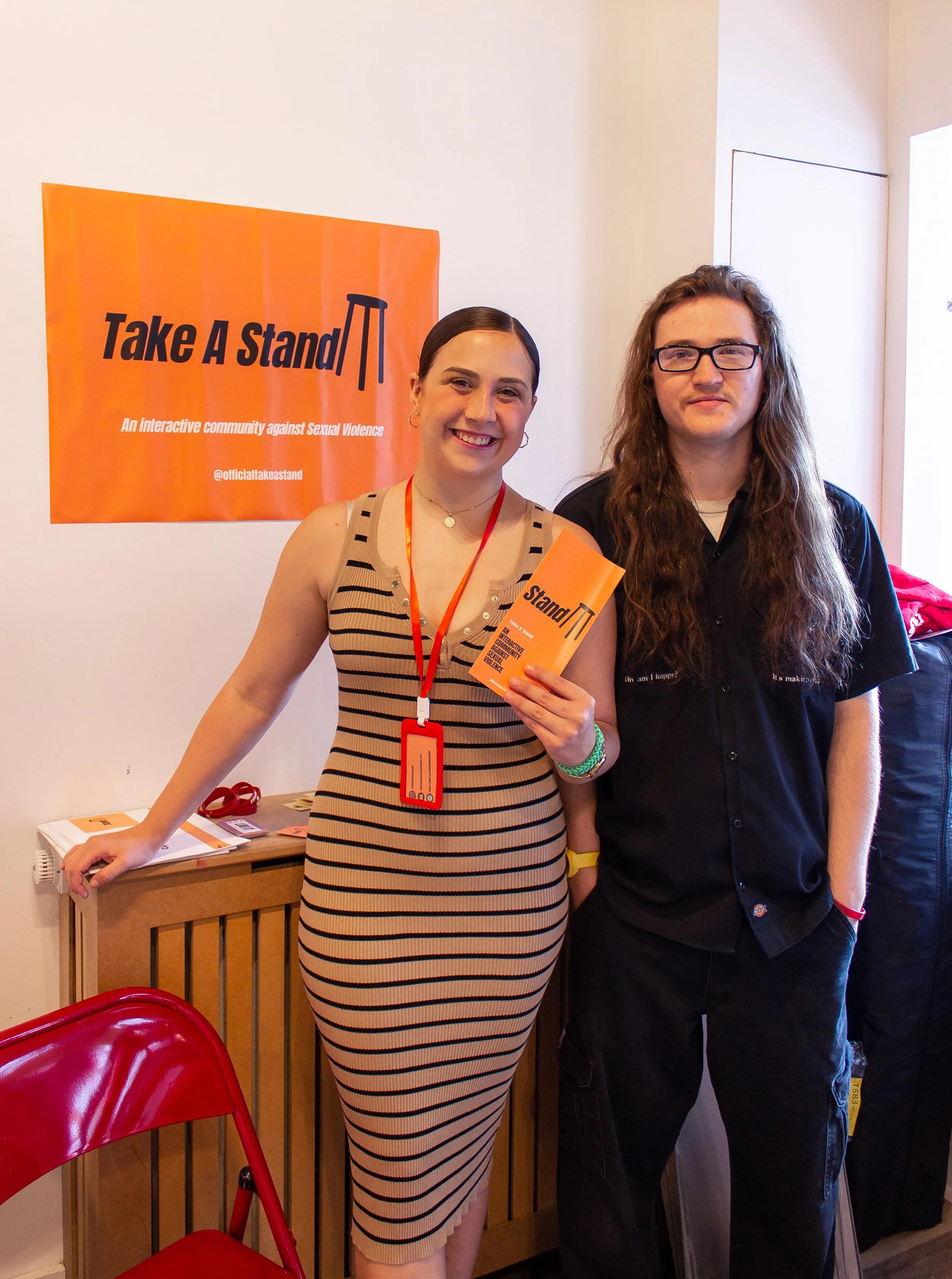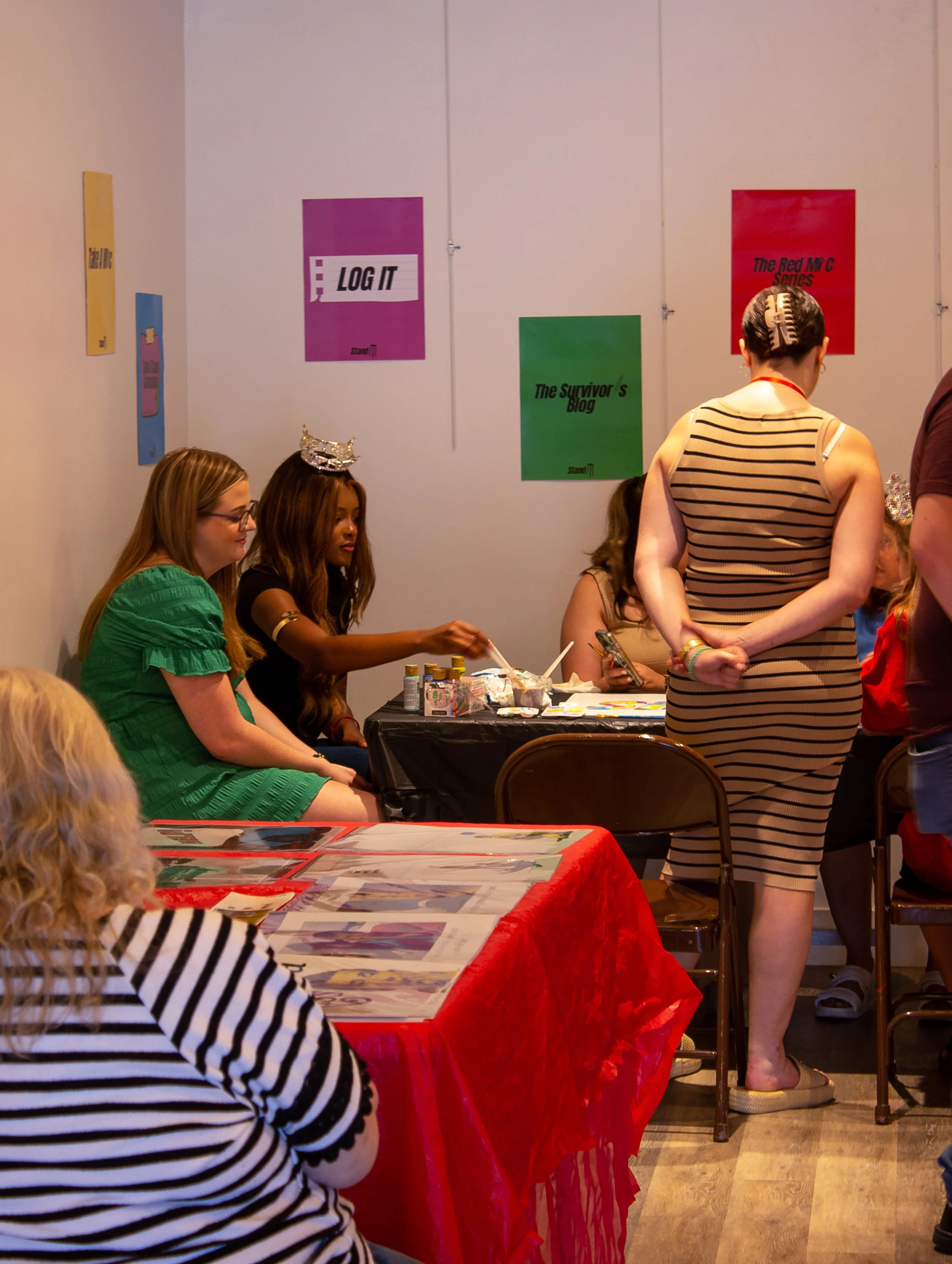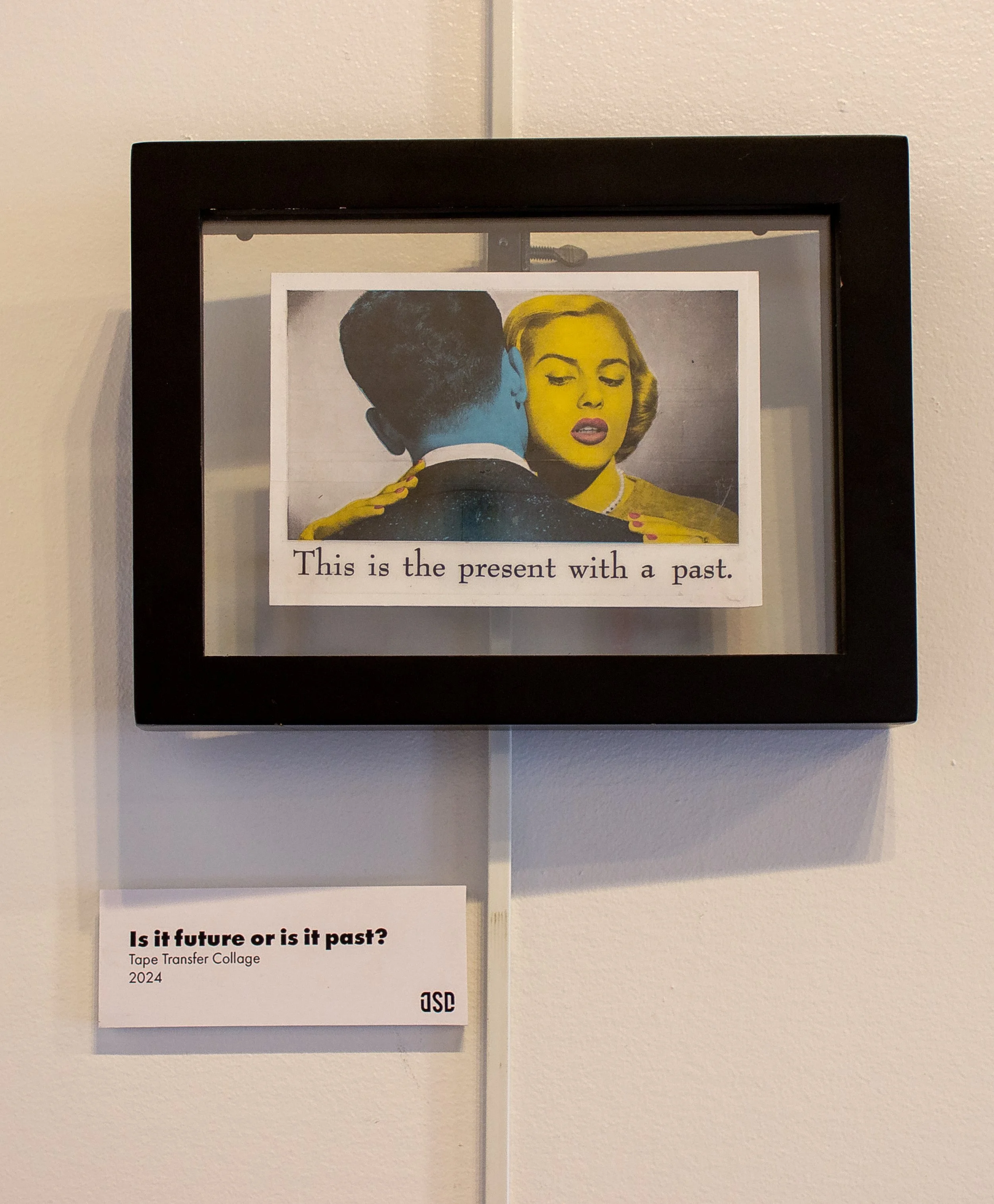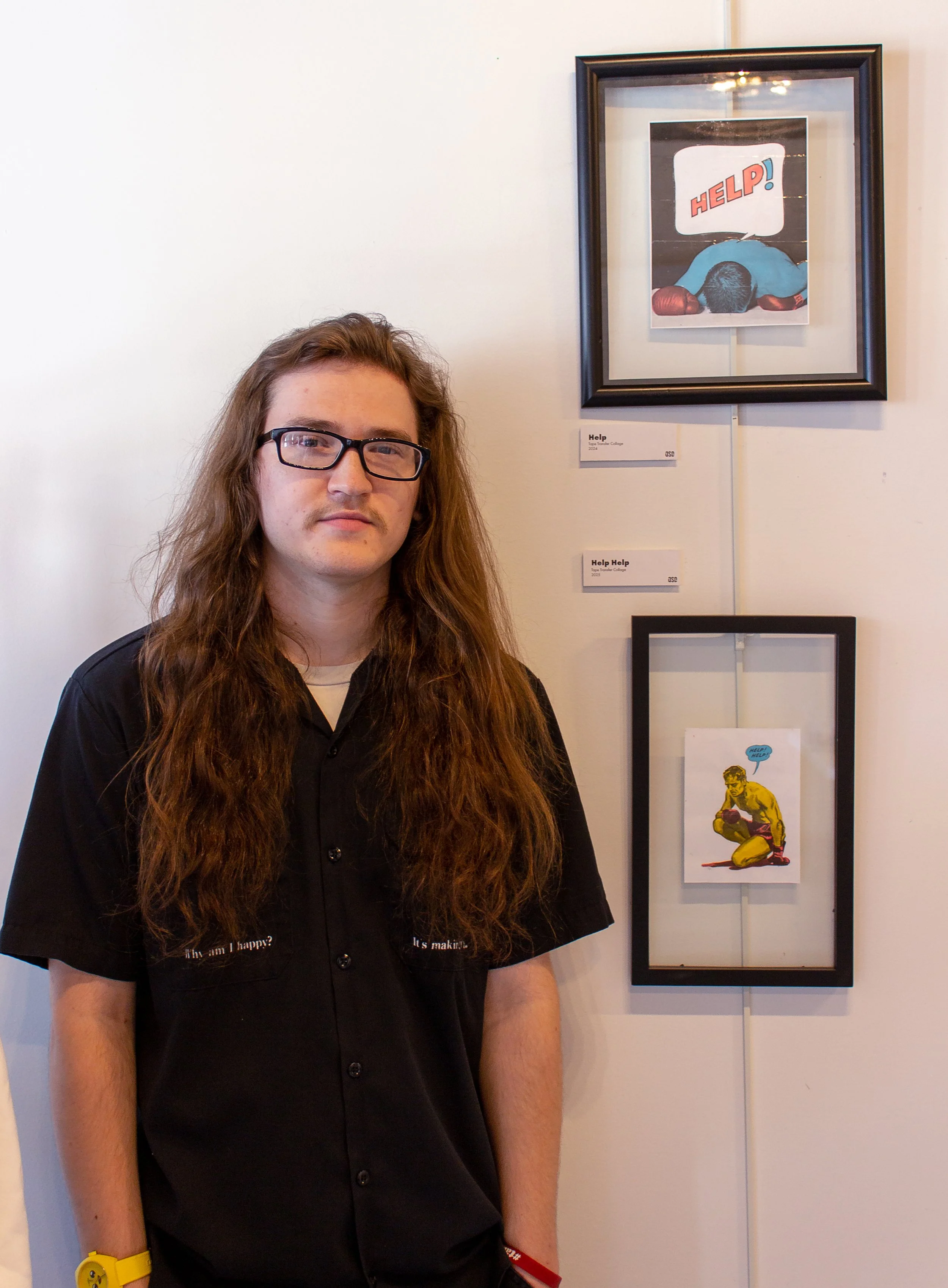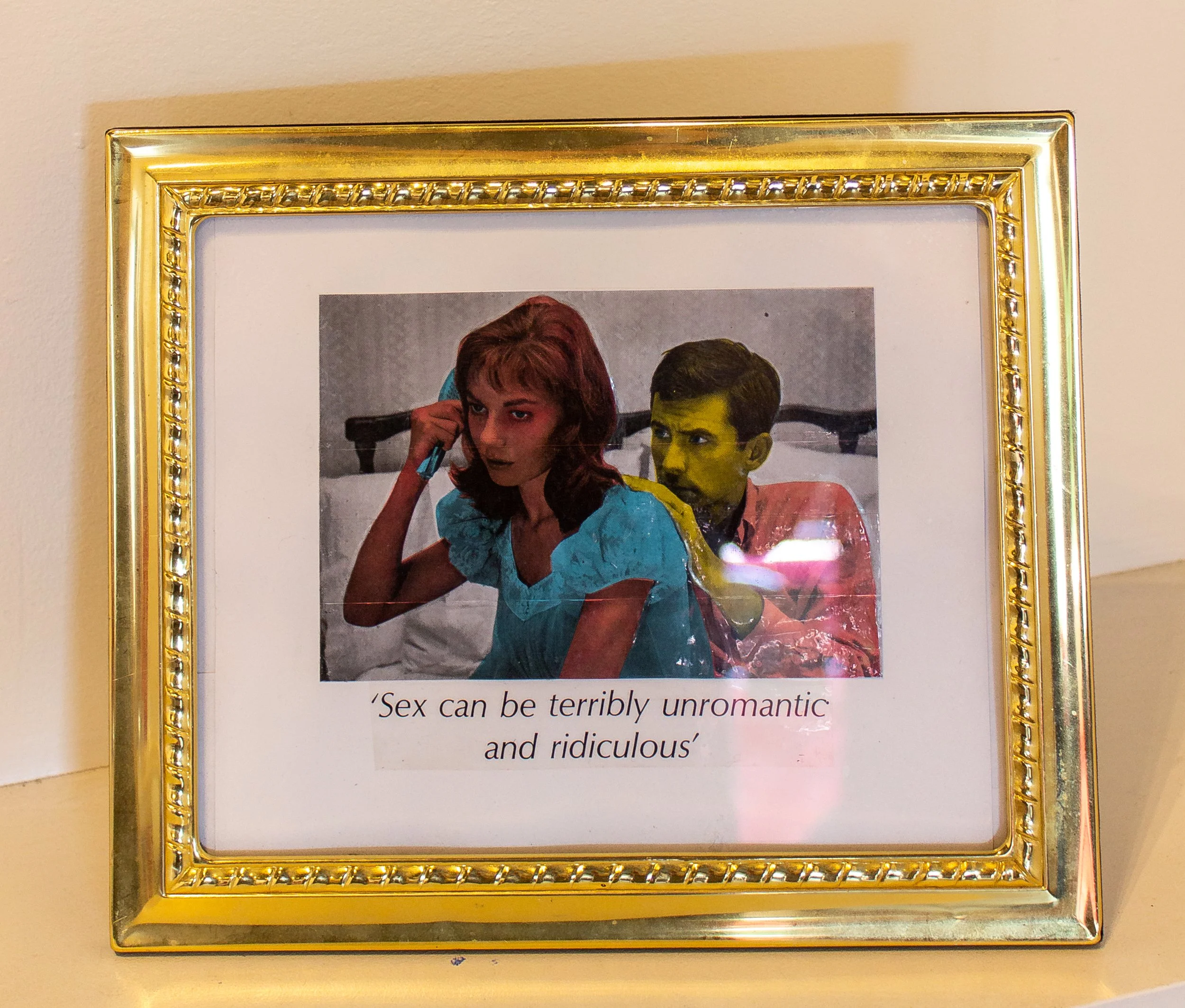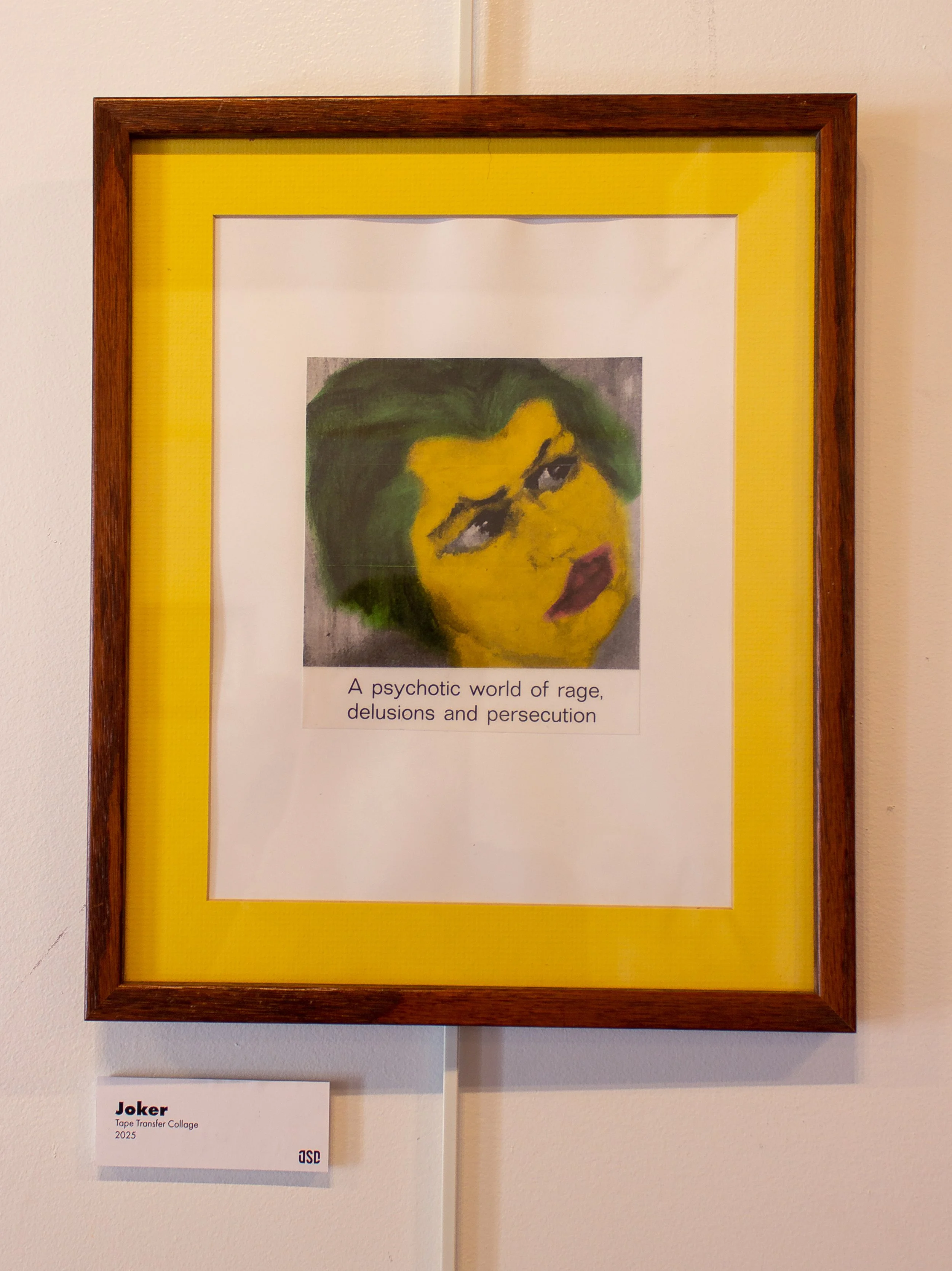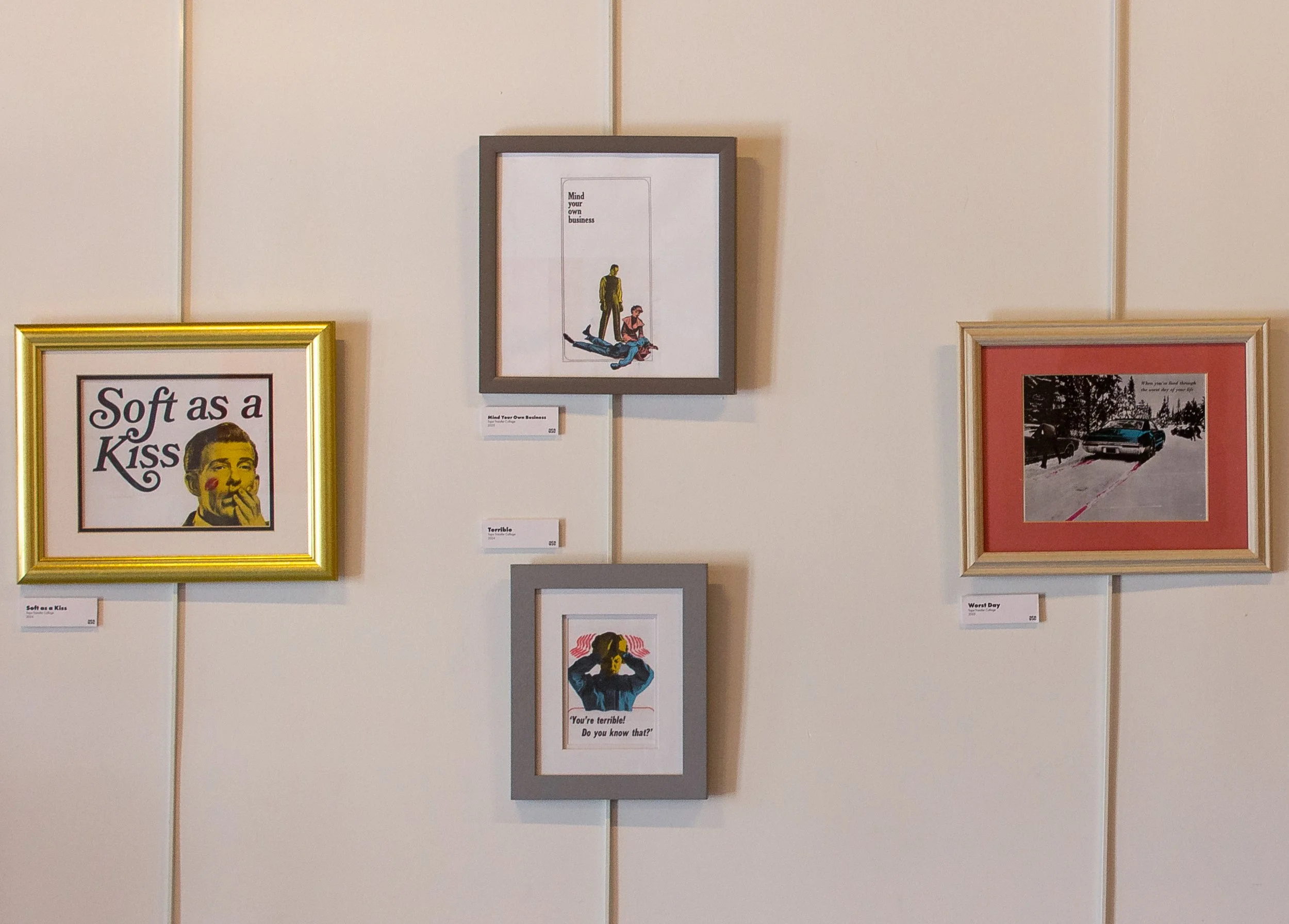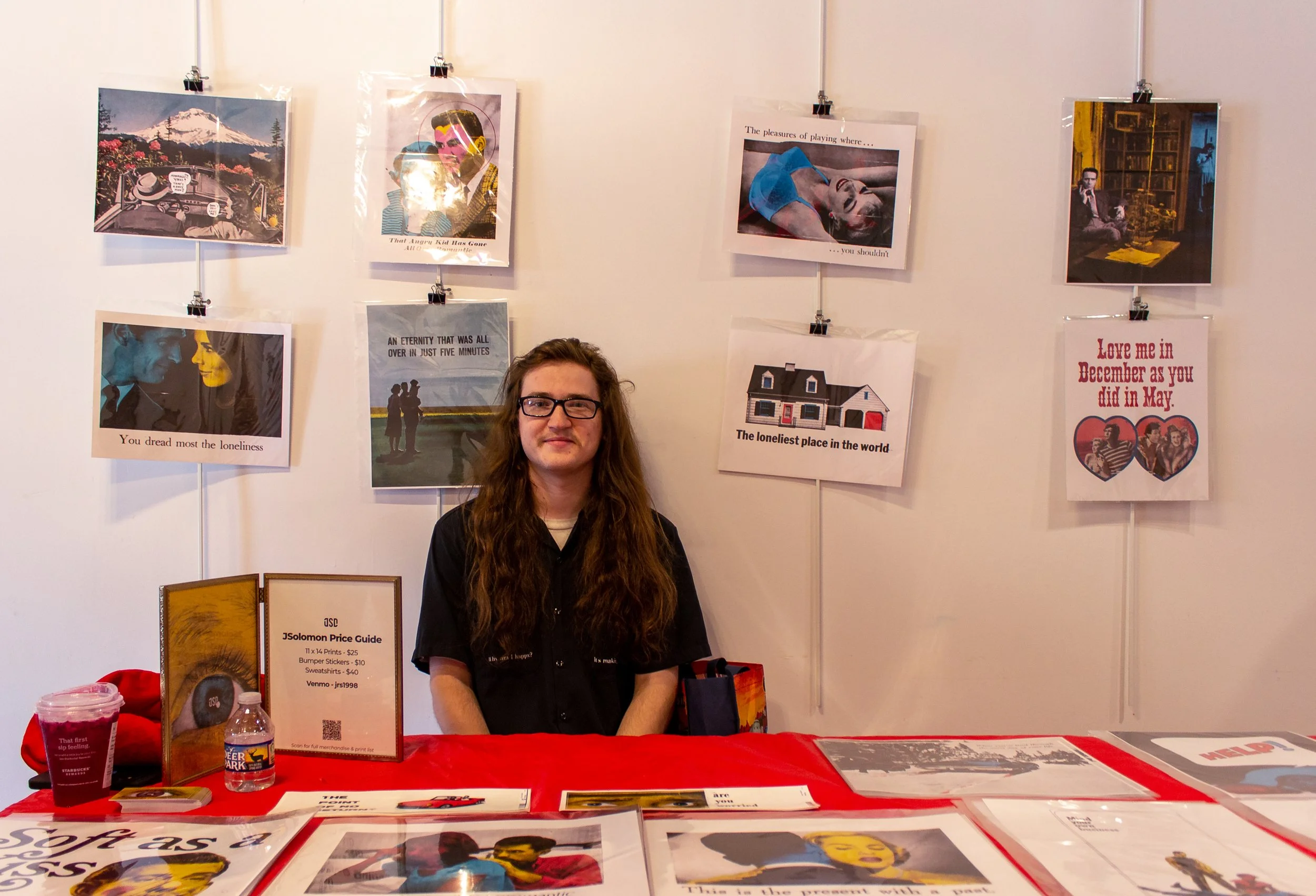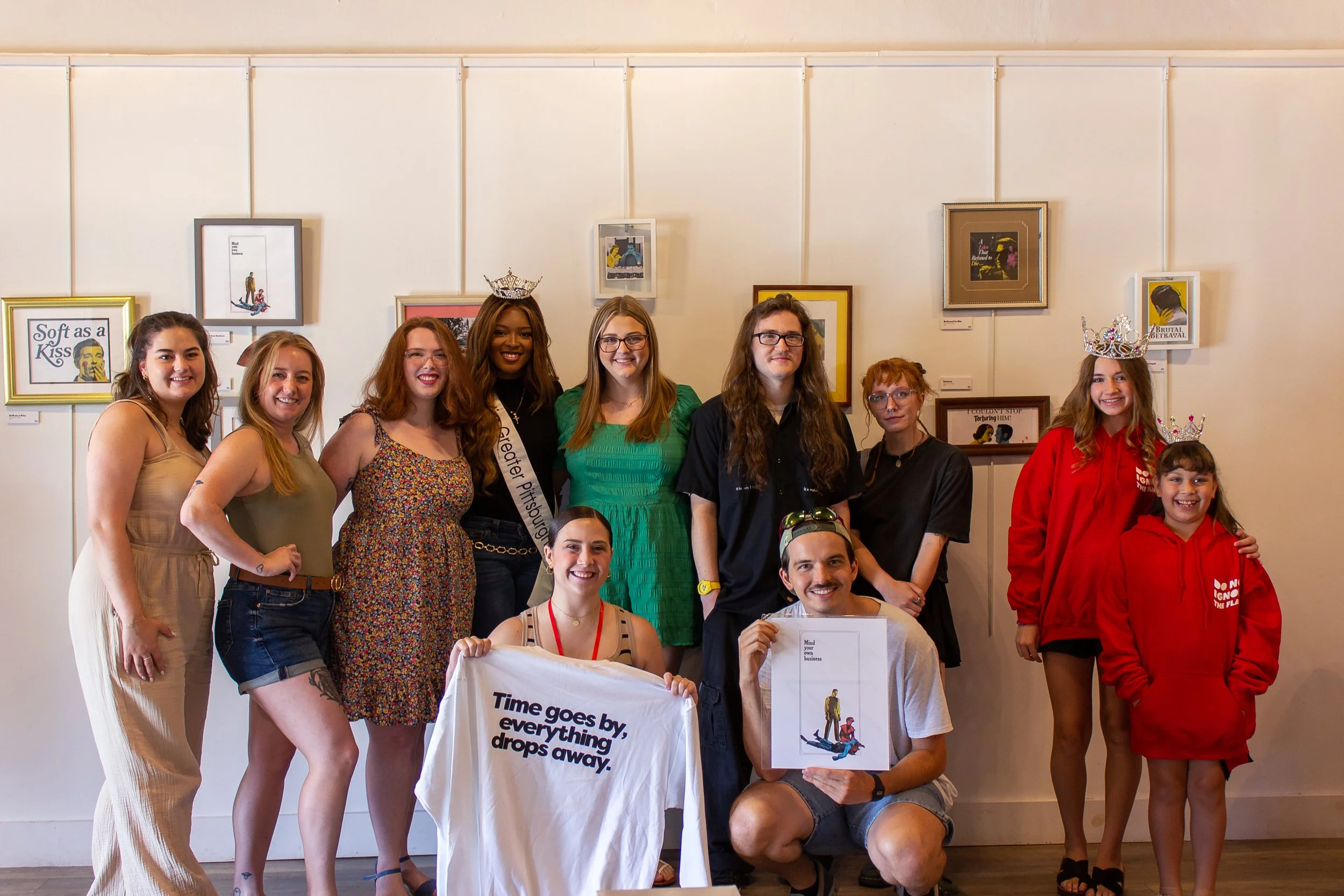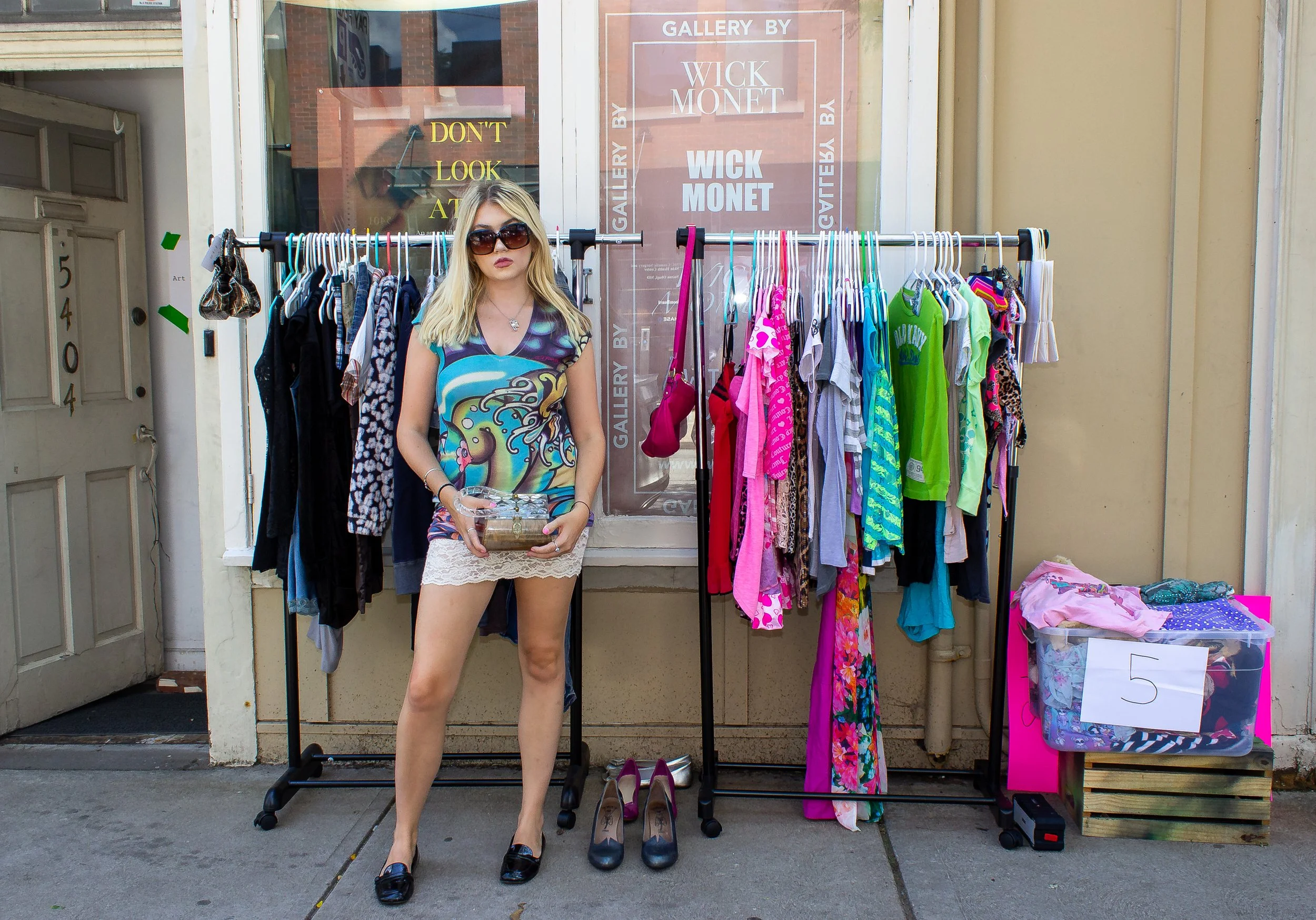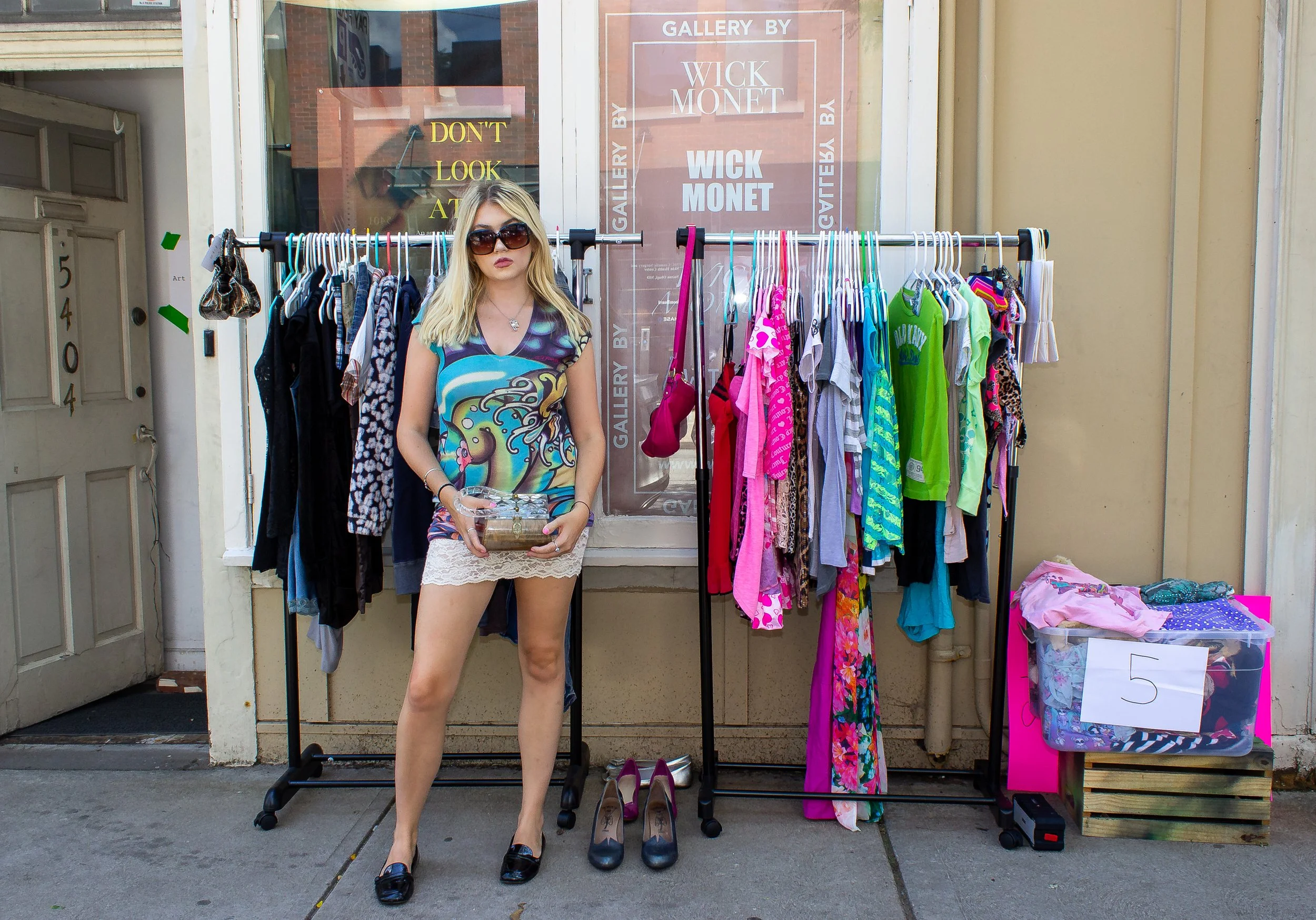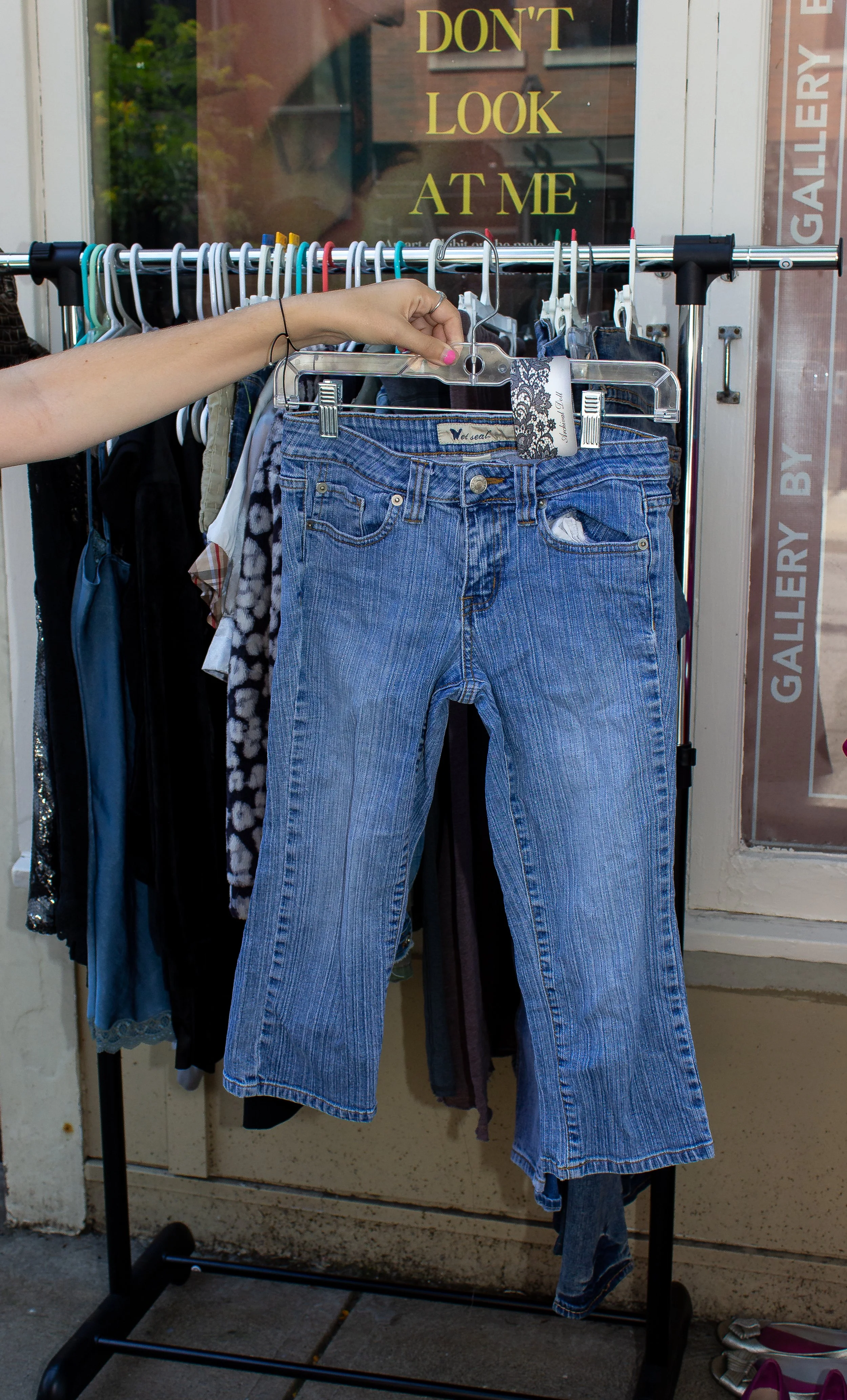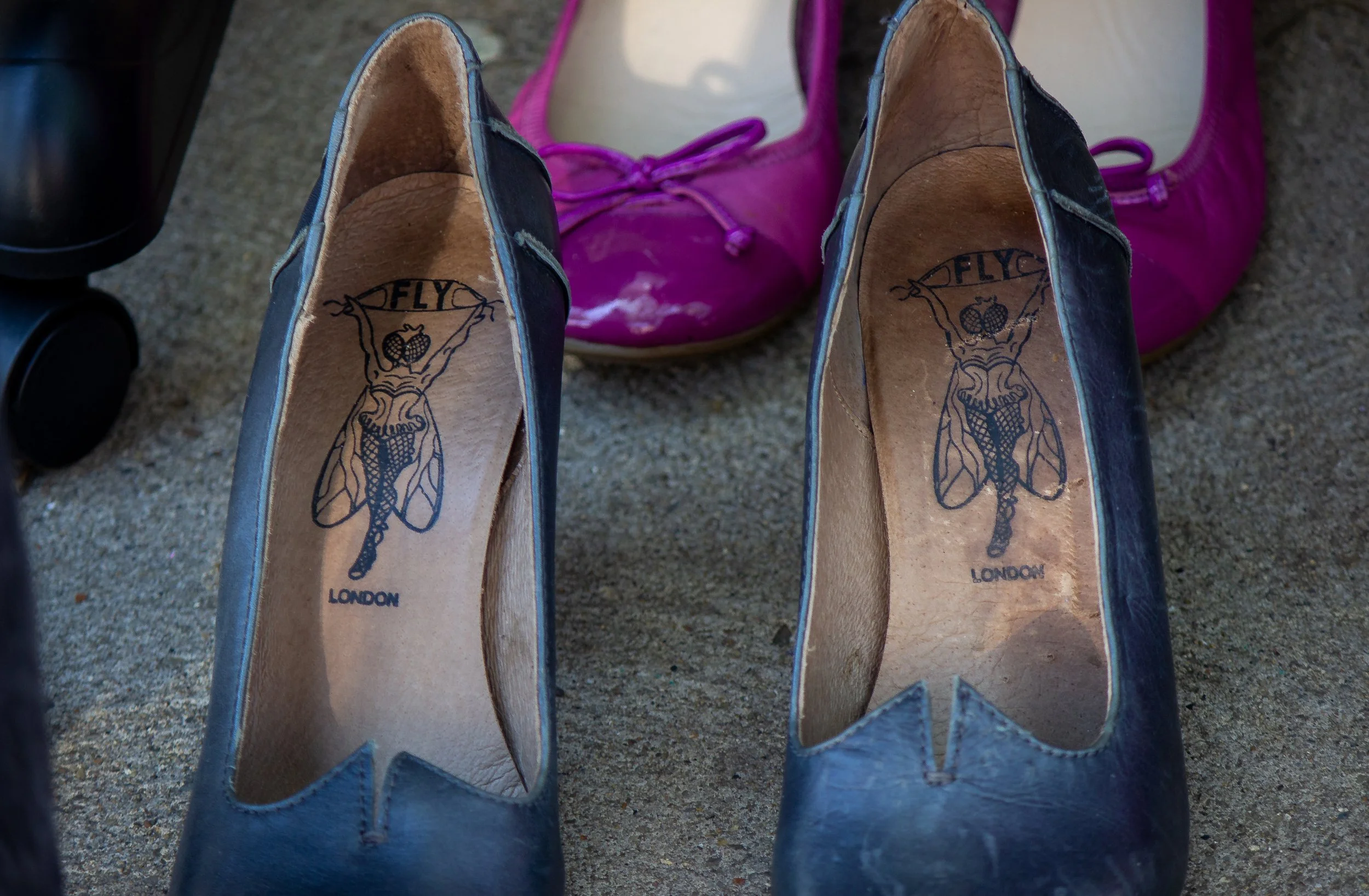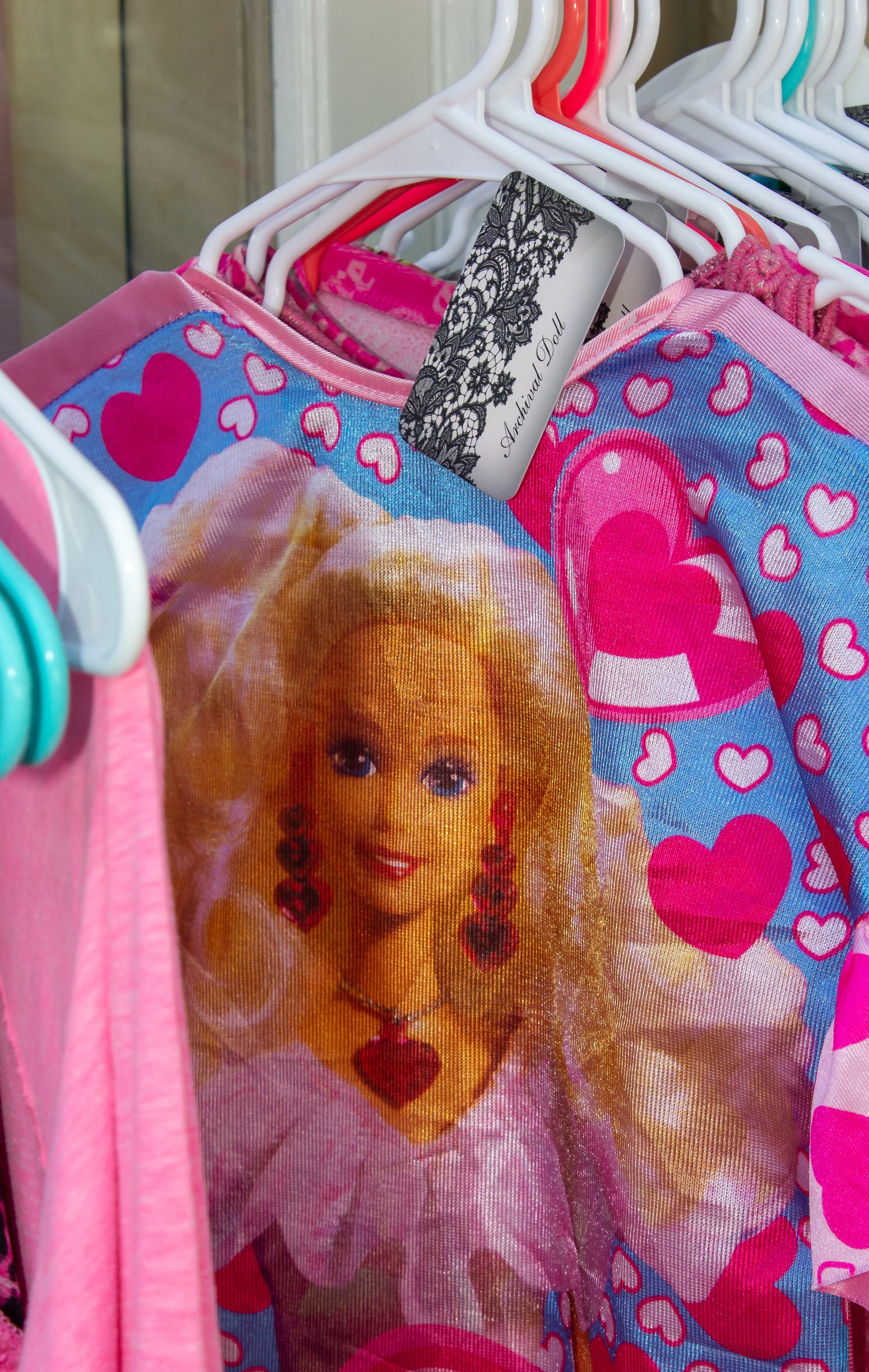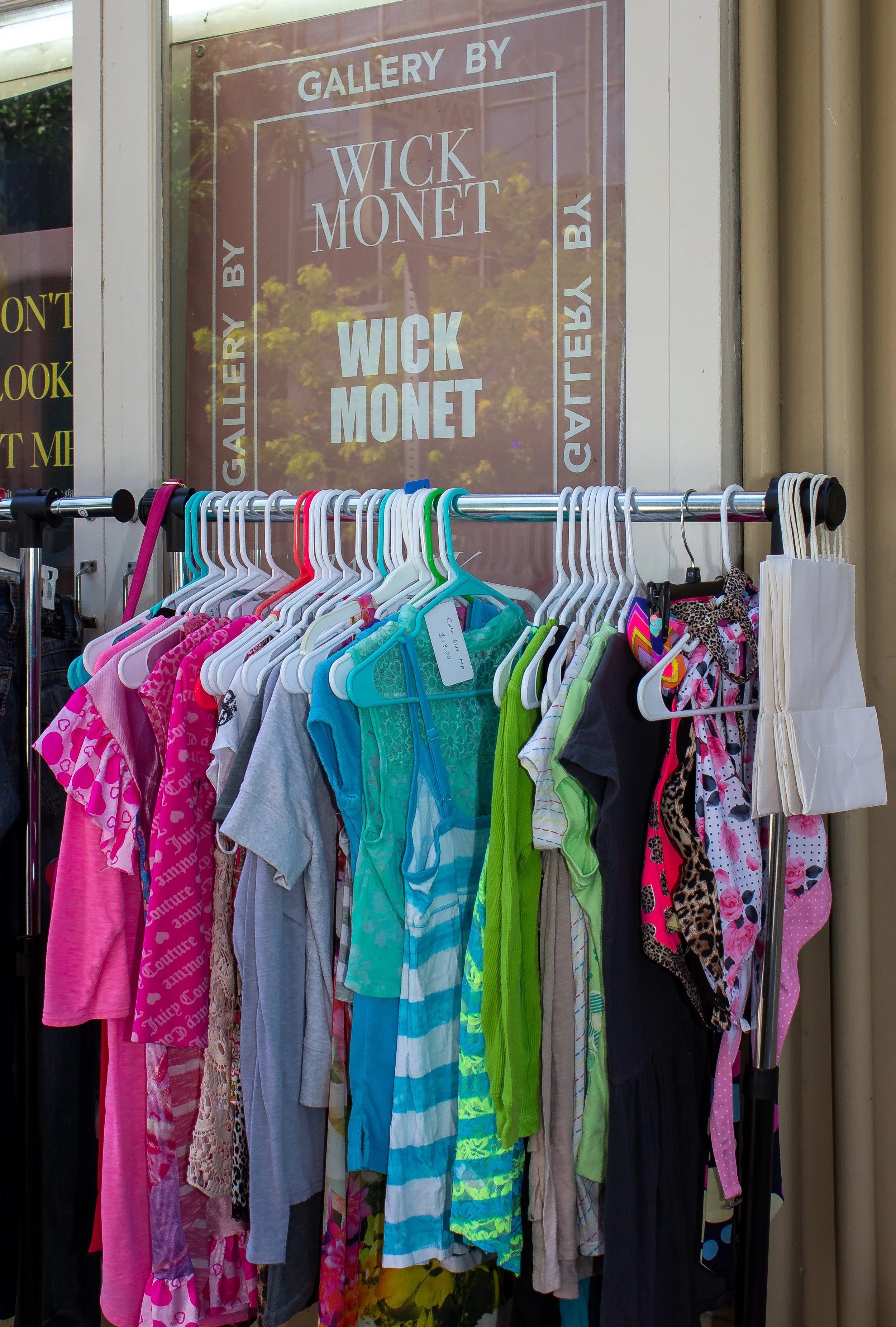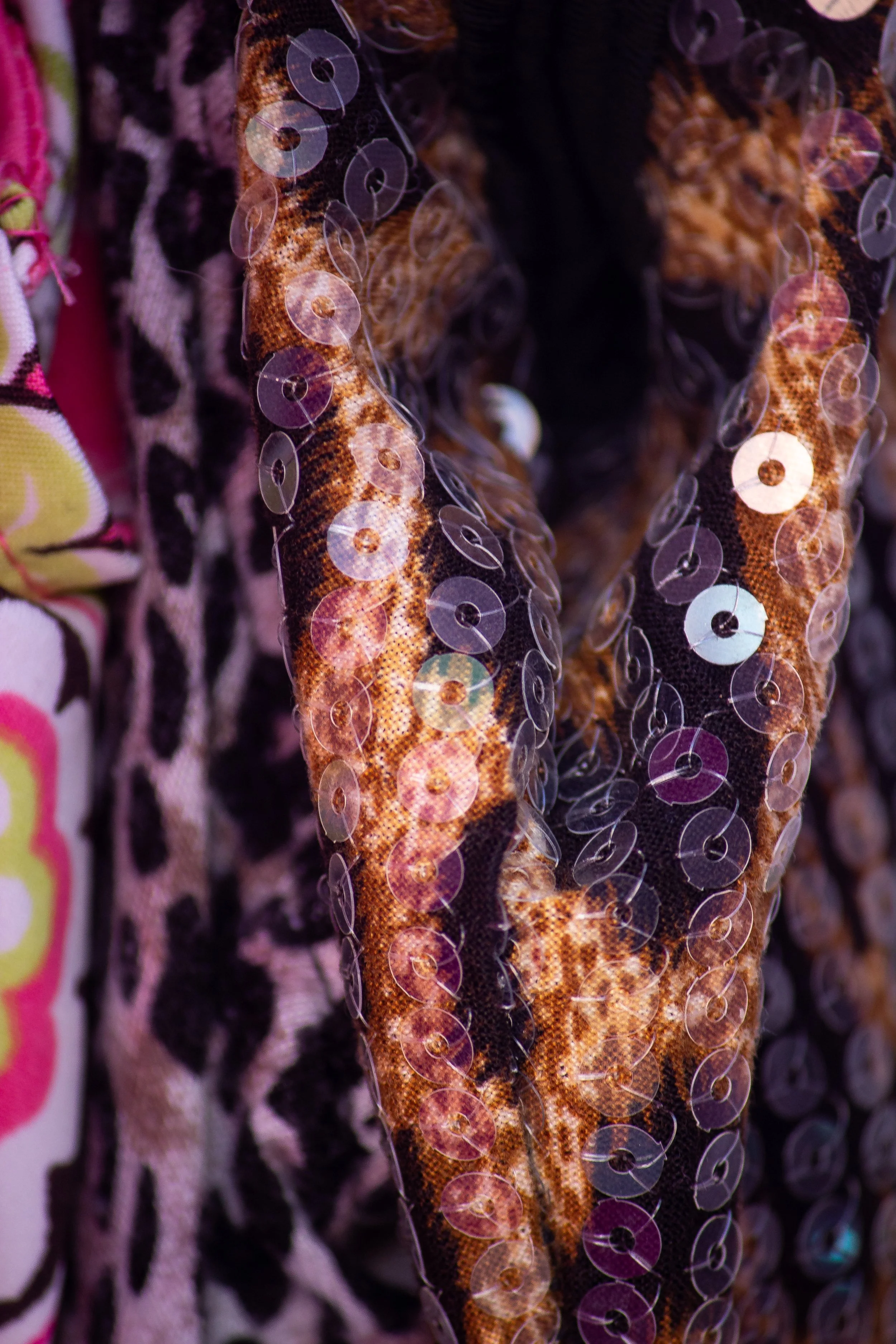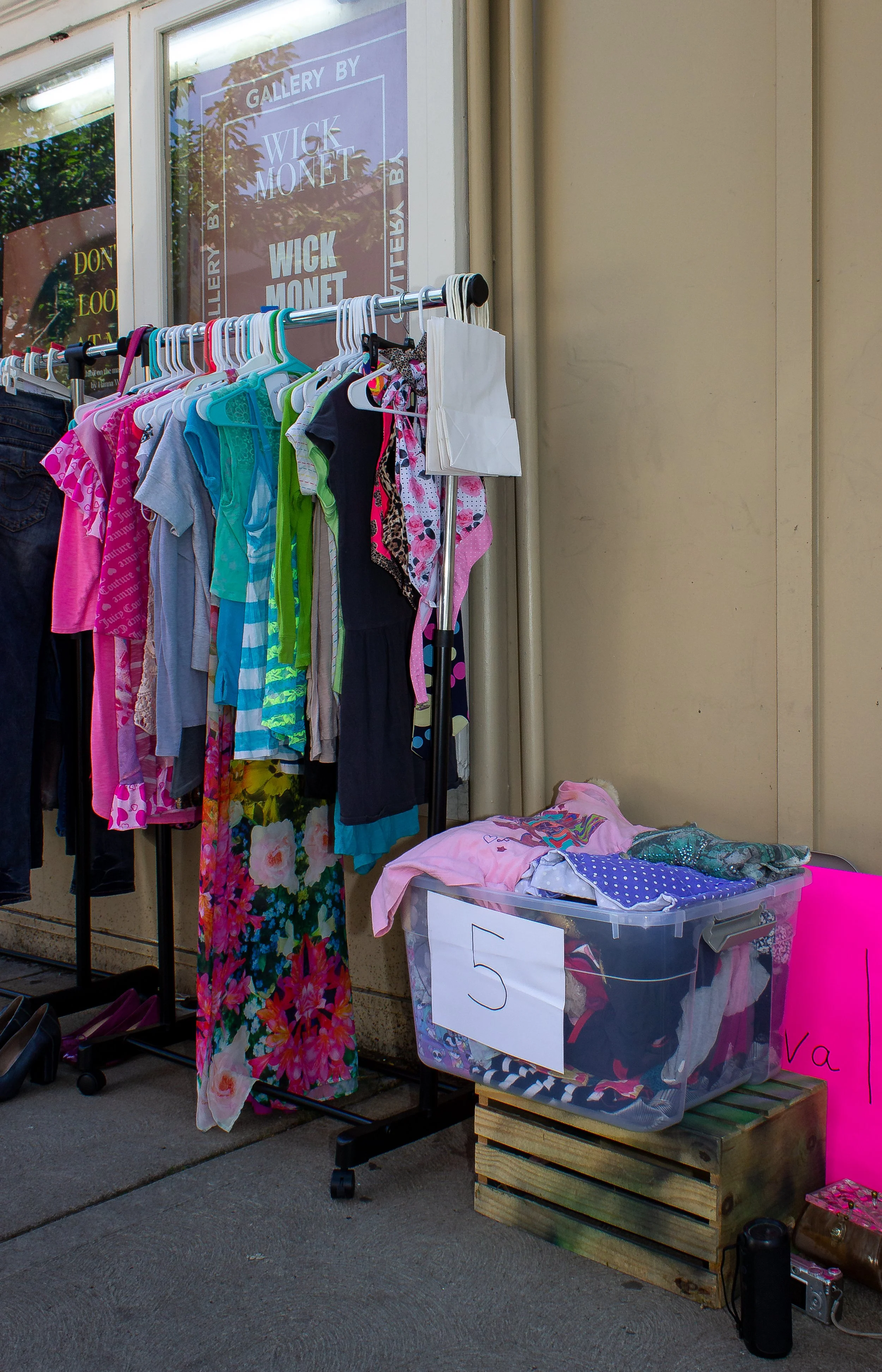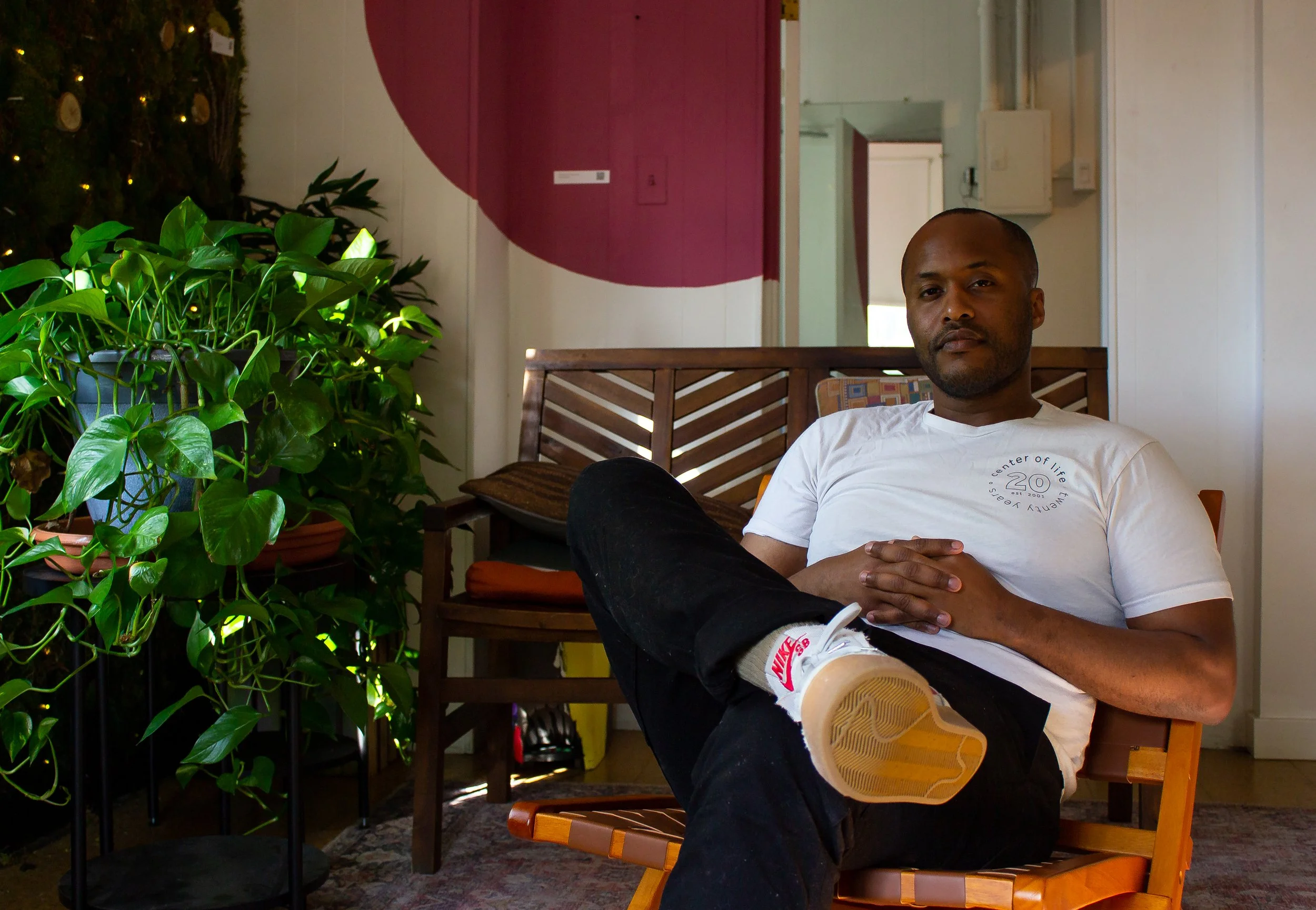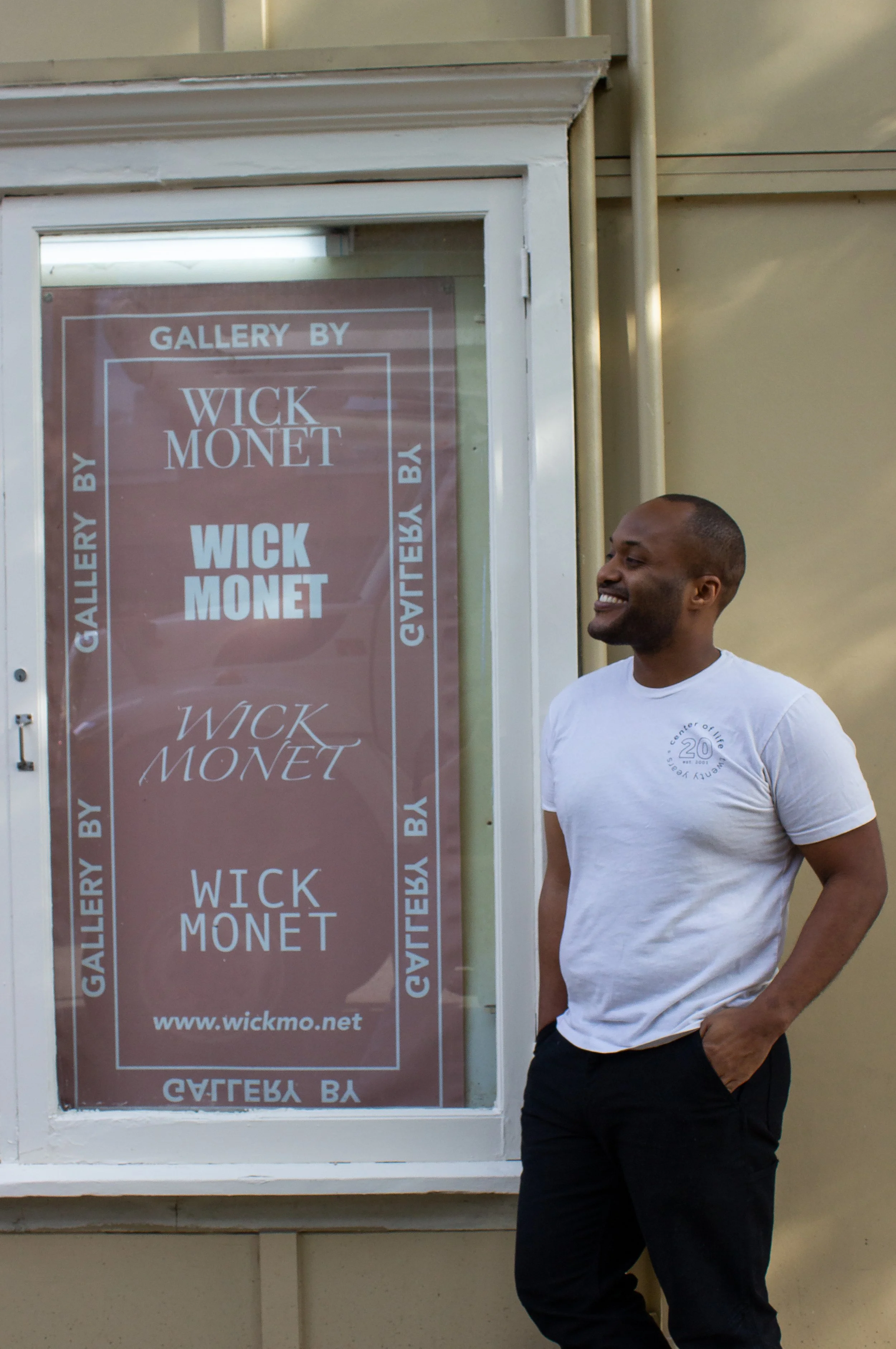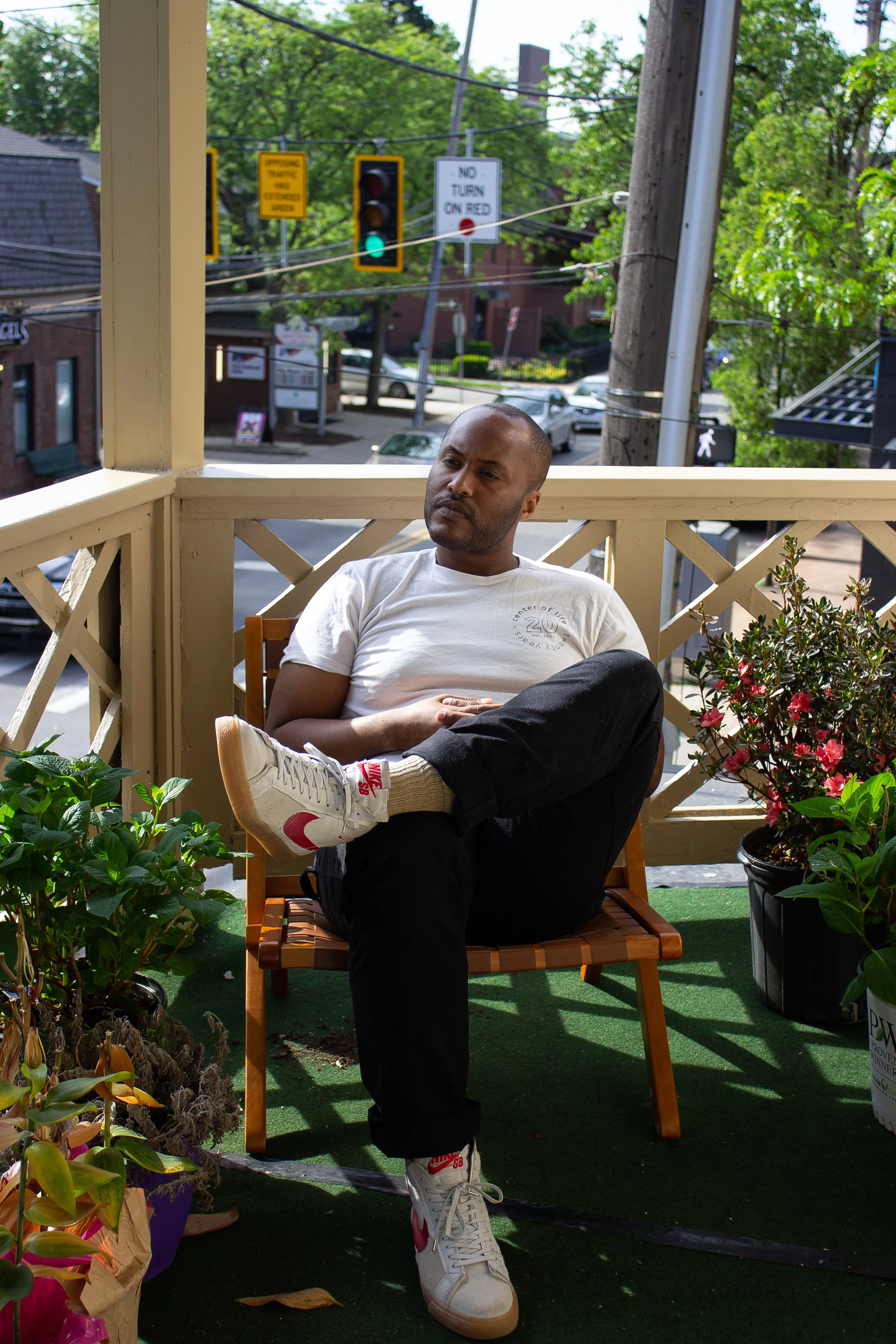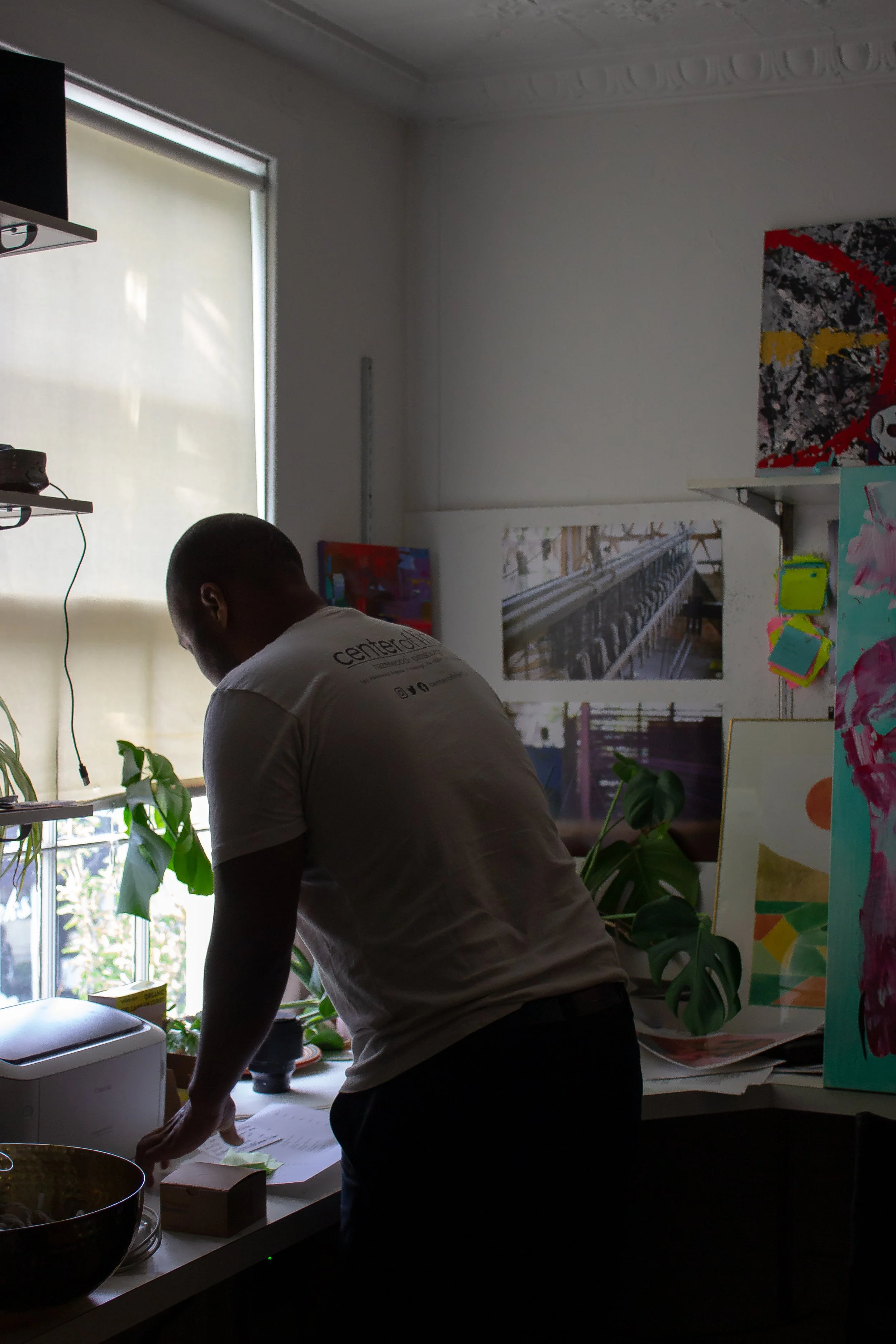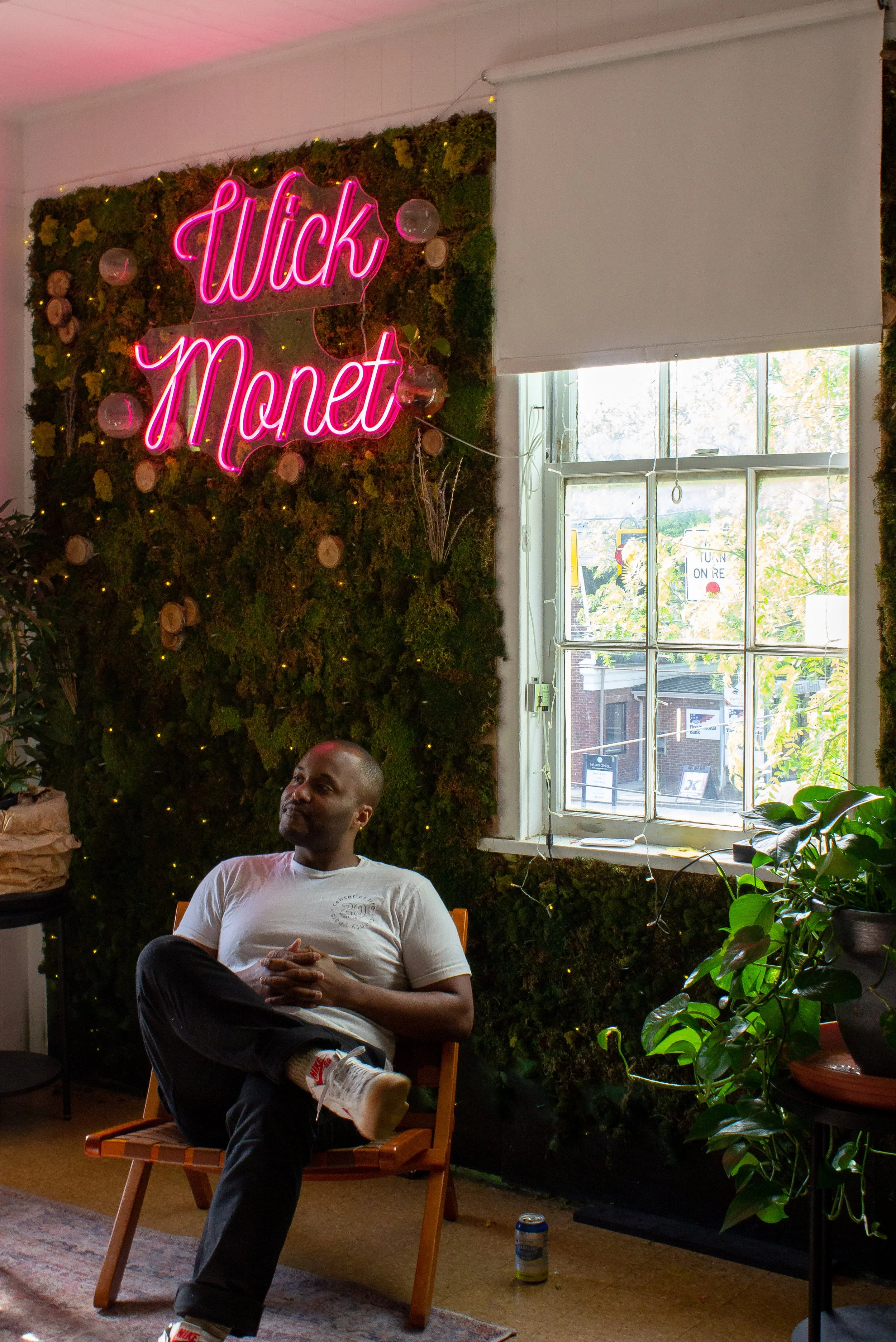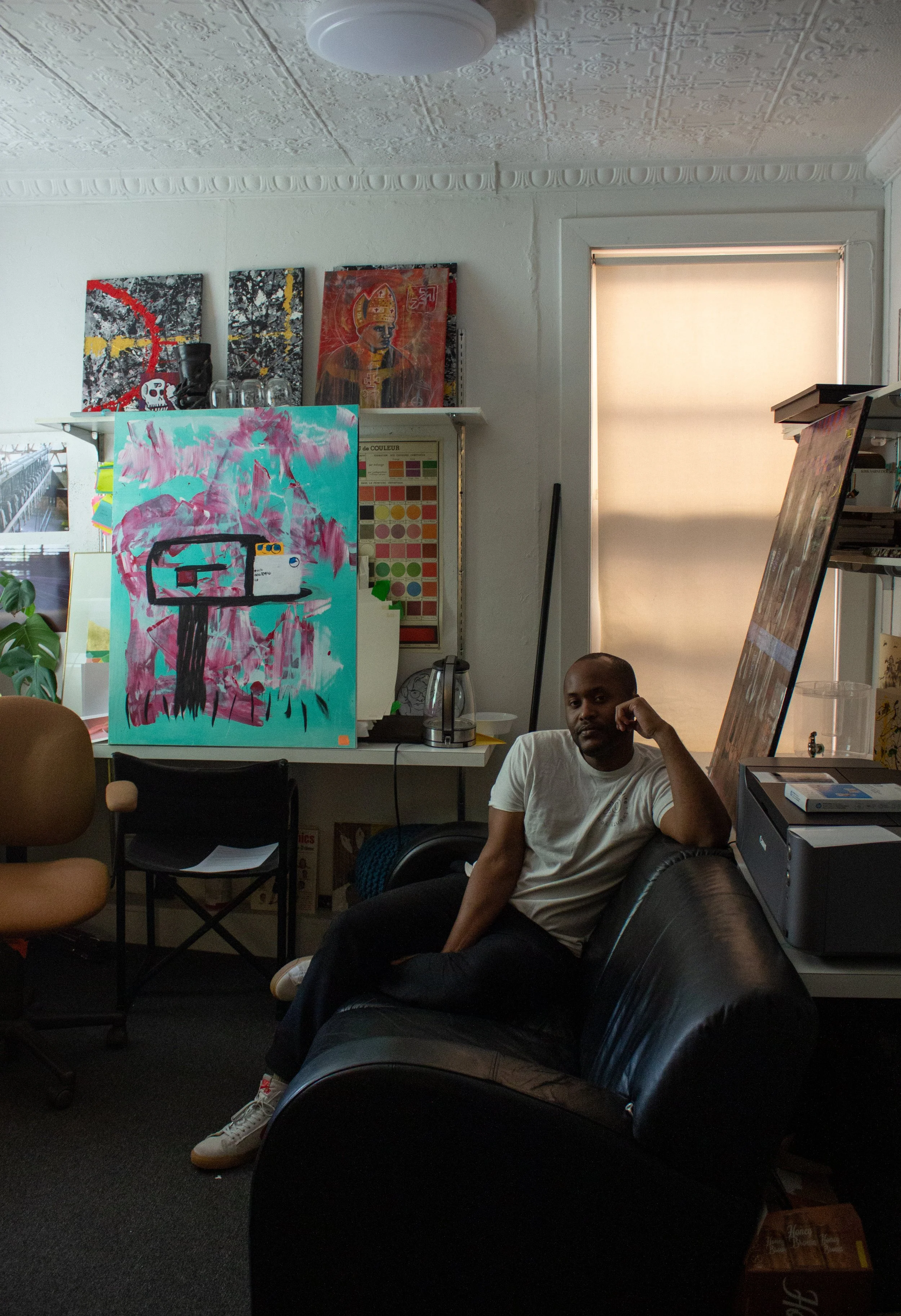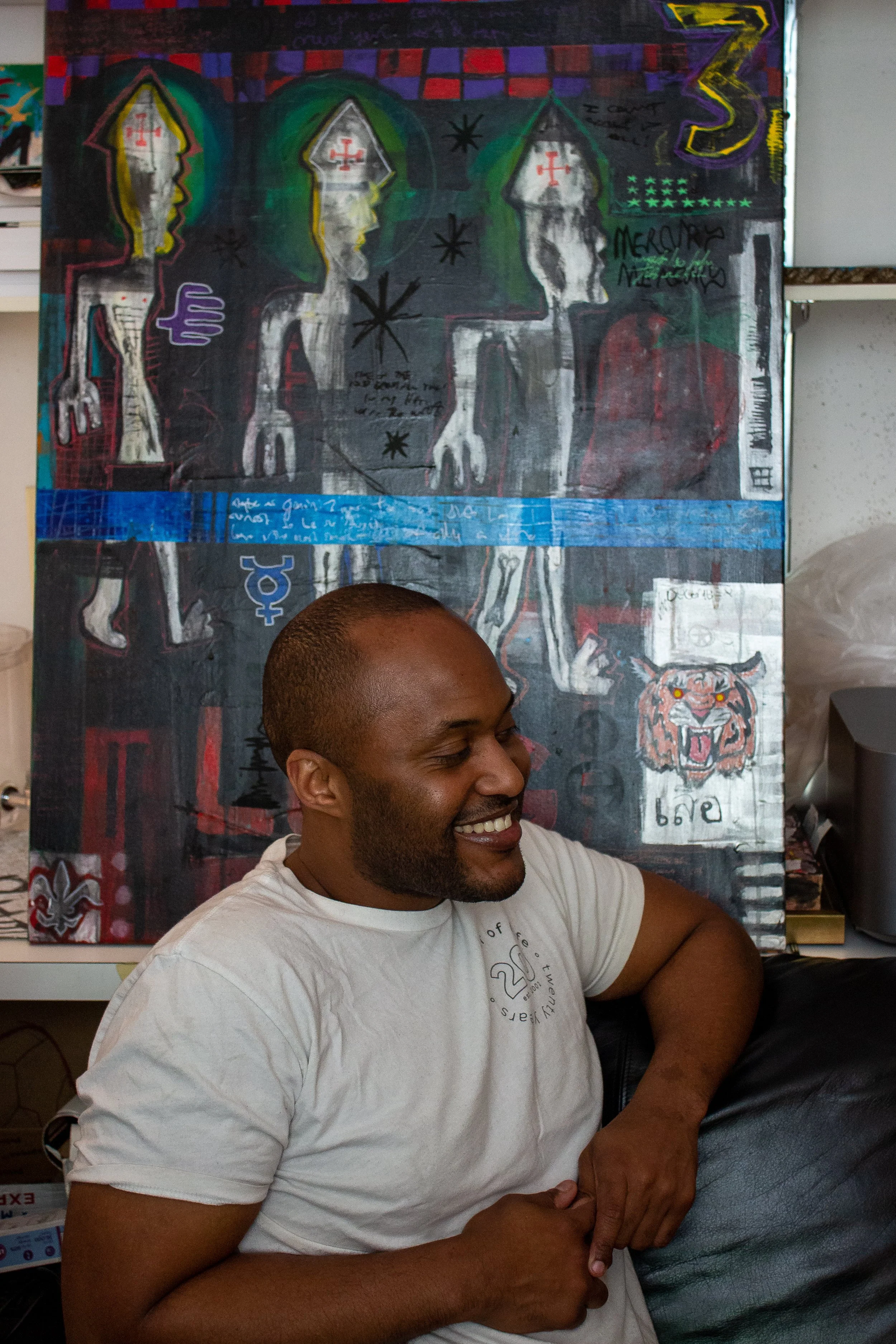“How do you show something you can’t see?” Raising awareness for domestic violence through art
In collaboration with Take a Stand, a nonprofit organization working to end sexual violence, Jesse Solomon, a Pittsburgh-based analog collage artist, showcased his latest works, titled “How Do You Show Something You Can’t See?” at Ketchup City Creative, an art gallery in Sharpsburg. The event and exhibition aimed to raise awareness about domestic violence through Jesse’s collages and Take a Stand’s interactive craft forums, which use art to encourage healthy coping skills. I had the opportunity to attend the opening, photograph the event, and speak with Jesse about the collaboration and what it means to him and his art. Keep reading to check it out!
How do you approach creating art to raise awareness about domestic abuse?
“First and foremost, the domestic violence-influenced pieces are created for myself. I’ve never been into journaling or writing things down, and so I use these pieces as a way of visual storytelling and therapy in a way. It helps me get these things I’ve experienced, and I know many others have as well, out into the world in a way that sometimes words fall short.”
How did you become involved with Take a Stand?
“I went to high school with Sami Roth, who is the founder of Take a Stand. She had reached out to me when she had first started the project/nonprofit to get my opinion on the artistic direction, and we’ve just stayed in touch since then on different ways the company can expand and help reach more people.”
How did you first get into analog collage, and why is it your chosen medium?
“I first started working digitally with photographs my friends would take of me or other people in high school. I’d take those into Photoshop and use the pen tool and cut parts out, and add on some filters/colors. In college, I started experimenting more with the physical process with a dull X-Acto blade I found in my dorm’s hallway, my first year. I think why I’m the most drawn to this medium is because of the process, which allows me to go in blind on a project and let my resources (ie, the magazine images and text) point me in a direction.”
What kind of response do you hope people have when they view your pieces?
“I think there are a couple of ways that I’m hoping people view my work. One of them being from a strictly artistic and methodical viewpoint. I want them to see the effort that was put in and notice the choice of color, type, font, layout, etc. Mostly everything is very heavily thought through and planned for each piece, and I hope that is noticed and appreciated. Then, on the other hand, I want these pieces to serve as a bit of an “I see you, you see me”. What I mean by this is that, although everyone’s experience with abuse is different, they aren’t alone, and they deserve better. I want those people to look at it and say “well damn” or “shit” like truly just be gut punched with the emotion I put into it.”
How can art be used to raise awareness of social issues?
“I think when it comes to art, it’s always created with social or political issues at the center. Sometimes that’s consciously, and other times it’s subconsciously. That’s the part about art that’s so meaningful for me: even if I had no intention of a piece being viewed in a specific way, someone could view it and really take it personally. Everything can have a different meaning to different people, and that’s what makes art worth sharing because not only does it bring us together, it creates space for dialogue.”
“How do you show something you can’t see?” was an informative opening into how art can be used as an outlet to work through experiences such as domestic violence, and showcase to others that they aren’t alone and that there is a community for them. Make sure to check out Jesse’s Instagram for more of his artwork, as well as Take a Stand’s Instagram for resources regarding abuse and upcoming community events!
Check out Archival Doll’s first of many clothing pop-ups
Over the past weekend, Wick Monet hosted Bea Schneider, aka ArchivalDoll, for the first curated clothing pop-up of her second-hand fashion brand. Fashion speaks to Bea not only in things she finds for herself, but also in things she sources and curates for her audience, and that’s what makes Archival Doll so special. As Bea says, “I would always see things when I’m out and think, this is someone’s perfect piece and it has to get to them somehow,” and that’s exactly what she’s doing.
Why do you think fashion is an important art medium?
“It walks, it dances, it breaks rules. You can dress and create who you want to be that day. You can be an old cowboy from a Western one day and Dorothy in Louboutins the next.”
What was a place that built your image of fashion?
“London. Living in London changed everything for me.”
Through her love of fashion, Archival Doll was born. Not only is it close to Bea’s heart, she’s also passionate about it, and she’s bringing affordability and quality to a market that has become oversaturated with inflated prices. If you like fashion and cute, unique clothes, make sure to check out Archival Dolls’ Instagram page, where she posts new finds and fashion inspo for everyone!
How does fashion speak to you, and what does it mean to you?
“It means everything. There are so many pieces in my closet that I hold close to my heart. A Galliano bag I’ll take to New York. A Moschino top my boyfriend bought me - a dreamy scene in Venice, gondolas made of lace. A Hysteric Glamour shirt I bought in Harajuku. “
In your opinion, how do art and fashion relate and work together?
“They’re sisters. Best friends. They borrow each other’s clothes. They make each other bolder.”
A peek into Radiant Hall (Lawrenceville)
On Sunday, June 1st, Radiant Hall’s artist studio in Lawrenceville was open for the public to come in and take a peek at some of their local artists’ studio spaces and the things they have been working on. Here are some photos I captured inside the building and a couple of studio spaces!
This way for art!
“Radiant Hall empowers artists to sustain thriving studio practices by creating and preserving access to space, shared resources, programs, and a supportive community of peers.”
The workspace of Smoking Joe Perry. Instagram: @smoking_joe_studio
A wall of different mediums of art by various artists.
Juliet Philips’ studio space, where she practices painting, drawing, and ceramics. Instagram: @jrp.cool
An art installation in Ross Hardy’s studio space.
Instagram: @rosshardyart
An interview with Cornelius Martin
It all begins with an idea.
“When done right, art is the expression of the human condition.” - Cornelius Martin
I interviewed Cornelius(“Neil”) Martin, founder of Wick Monet, about what art means to him and the Pittsburgh community, and how Wick Monet has integrated itself to become an inclusive space for artists just starting out and for those who have been in the art game longer than he’s been alive. Wick Monet represents the dreams of not only Neil, but any artist who has been scared to put themselves out there, through the gallery, and Neil’s open-minded approach it has become a haven for artists of all kinds.
What inspired you to start Wick Monet?
I had been working with a few filmmakers, and I was trying to progress their careers. Helping produce films, just getting equipment to make sure that they're good, and I was just like, what do I really want? I really want a space, I want a gallery. It was just an abstract idea, and then my friend Darius invited me to Mexico to hang out with friends, so we went down there, and we went to the city of Oaxaca. We went to a place called San Jose Pacifica or Pacifico, and then we went to some beach town, I forget the name, but it was in the beach town at the beach that I had a moment of enlightenment. I had like, $200 between me and Darius, and I was just looking at him, and Darius was getting his PhD in medical anthropology, he was getting his master's in public health, he learned Arabic just for his program and lived in Jordan a few times, living and working in refugee camps, and I was just looking at him I was like, God, why is he so brave? And as I'm looking at him, he's fighting waves in the water, and I'm just on the coast, and it just came to a point of, why am I being a coward? I want to help people. I want to work in art. What is stopping me? At that point, I just made the decision, I wanted to work at this. So as soon as I got back to Pittsburgh, I started writing a business plan. Then two weeks into writing the business plan, I was looking for spaces just to say, you know, in five years, what will this space cost me? Then I found this place in Shadyside for a price that I could afford, and I just jumped at it, and a week later, I signed the lease, and then Wick Monet had a building. That's the PG story.
How has Wick Monet integrated itself into the local community and the Pittsburgh arts scene, and how do artists approach you to be a part of the gallery?
It's funny because we started with nothing, no relationships, and no one knew who we were. All of my art connections were through my job at Center of Life, and I didn't want to involve Center of Life necessarily in the foundation of this. I thought it should come from the people. So it took me eight months, with the help of my father and some other people, to renovate the space and I should shout her out because she was the first intern of Wick Monet, but this woman by the name of Akirah Hickson, an incredible architect right now, she was the first person to take a flier on us. The space looked awful, and she decided, I'll be an intern for this person. But it was really through her and others who have come through our internship program that we became integrated into the community. It was people who wanted to further their careers, and it was me helping them do so and learning everything that I could, from them. Together, we were able to have our doors open while I was at work, trying to pay some bills. It was their ideas that led to certain exhibitions, and once we started having exhibitions, people started getting involved and hearing about us, and it's just snowballed.
I really take pride in us accepting anyone who comes through our door, so many things have come from people just saying, hey, I just saw this place, I heard about this place, and we've had so many exhibitions, projects, and offerings come from it. But yeah, we are and will be a part of this community.
How would you say art plays a role in creating community?
I think when done right, art is the expression of the human condition. You know, hopefully not just for money, not for just status, but like, this is my experience, this is what I'm living with right now. And with that, art has the wonderful ability to connect with anyone. When you have something that is reflective of the community and it has the power of connecting with anyone, to me, that's just what life is about. Art, if I could just boil it down to anything, it's just one of the only real things we have. If there's a problem in society, if there's a problem within art, that's what I want to address. If there's someone who's questioning their place in life or how they are going to navigate art, that is inspiring to me.
What is your favorite art form?
Maybe my favorite art form is improv. I was an improviser for two and a half years, and I had captained my own team and all that. We were called the Vipers. It taught me that I can be anyone I want in as much detail as I want on that stage. And for two minutes to five minutes. No one can tell me otherwise. And when I'd walk off the stage, it was like I was that human. And then four minutes later, I had to go back on stage and be a completely someone or something different. And when I finished improv, it was like, what is the difference between real life and the stage stuff?
Inherently, I'm no one. I can be anything. So, when we tell kids that [they can be anything], I don't think we tell them that doing it and the everything else is the most important part. It's like, oh, you can be anything you want, and then we walk away. As a kid, what do I do with that information? But actually being thrown in and having to become that person, in front of strangers, there seemed to be no difference. And so improv is my favorite. So many actors and famous people who got their start in improv. It’s a battle. You are going into the unknown with your team, and you just have to figure it out on stage. I love it and I suppose that all of that is why it’s my favorite.
What advice would you give to others hoping to create their own inclusive art space, especially in places where there isn't as much access to art-based scenes, such as Wick Monet?
Honestly, and maybe this is too personal, but do it in your house. Ask some friends, hey, let's create an art network and just do it in your homes. So many beautiful art moments happen between like two to ten people, and then just live in that space for a bit. Put on an exhibition in a small room, maybe partner up, go in someone's yard, have a small concert, get your practice in, in the safest way possible, so you don't have to spend your money on rent and you can learn lessons like how to hang art, how to speak to artists, how to navigate a curation, and you can do that from your own home. Now, if you open up to the public, that's a different story, but you can at minimum, host an art exhibition with your friends, and when you have these get-togethers, these parties and such, just make hangouts more about art than they typically are, That's where I'd start.
Where do you hope to see Monet going in the future?
I would love for Monet to become an art school alternative, where maybe you pay a little bit of money, but it's nowhere close to what you'd pay at school, and it teaches lessons mainly on how to build community, how to use art as a tool, and for some of the technical lessons, you just have apprenticeships with people in your medium. That is probably what Monet would thrive in doing. I don't think that art ever needs to be something that makes you go broke. There are certain mediums that are expensive, and that's hard to do. Fair. But failing is probably the best lesson in doing any of this, failing, but going out there. It sucks that there's 18 to 22 year olds who have the most freedom that they will have in life and they're just stuck on these campuses, going in crazy debt under the guise of, this is going to make me the best artist. That sucks. What you're really learning is just tradition and putting ceilings on what's possible now. If art is your thing, make sure travel is a part of it, work in the field because it's possible, that's where I'm at. That's my lesson.
Who is your favorite artist(s)?
Who's my favorite artist? You ready? I got three of them. Claude Monet, Andy Warhol, and Young Thug. I've given this speech a thousand times. Young thug is an encapsulation and a representation of how art can come from anywhere. This guy grew up in some of the worst projects you can imagine, lived a crazy lifestyle, and somehow became this abstract artist through music, fashion, and such, despite no one else around him being in that life. And he fully committed to that lifestyle. So I'm just like, if he can make the song Harambe, I can do anything, I can do anything. Then Warhol was awesome because he was the perfect commentary of capitalism in the 50s, and just in general, playing with materials as toys, and people as toys, and emotions as toys. And then lastly, Monet. He's just a cool guy. He's a good painter. Yeah. So that's my stuff.
Wick Monet began as just an idea and has now evolved into a thriving community. Through Neil’s passion for art and people and his unpretentious and open approach, it has become a place for people to express themselves and become more involved in their local art scene. Neil and Wick Monet are a testament to hard work, dedication, and wanting to give back to the community, and that even though sometimes you may fail and think things are out of your reach, if you keep at it, things will fall into place.

